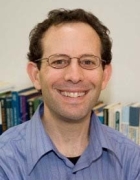For those of you attending our National Conference, taking place at the Geological Society in two weeks time (limited tickets are still available), we would like to draw your attention to some important reading material. A number of the articles we have selected are available to read online. Others may be found in your university libraries.
Based on this reading material we are very keen to hear the questions you want to put to our expert panel on ‘Effective Communication for Effective Development.’
Purpose
The purpose of the reading material we have collated is to help you come to our conference prepared and ready to contribute. We’re delighted to be welcoming an excellent range of guest speakers – from academia, industry, NGOs, Parliament and the public sector – but we’re most excited about having YOU there to share your thoughts and ideas, and voice the questions you may have about the important role geology can play in development.
We would love our question and answer sessions, and the afternoon debate (more below) to be dynamic, interactive and informative. The reading we have set is not designed to give you all the answers, but will hopefully spark off thoughts, ideas and questions so that we all leave the event (i) better understanding our role as geologists in the fight against global poverty, and (ii) better understanding how we can apply ourselves to that role in an effective and sustainable manner – for the benefit of those we seek to serve as a profession.
The Material
Details of the material we have selected can be found online here – http://www.gfgd.org/conferences/conference-reading – including contributions from some of those speaking at our event. We’ve also collated some possible discussion questions to facilitate your exploration of these readings. If you’re coming to the conference, why not gather with some others who will be coming and think through some of these whilst enjoying a coffee or beer. Scribble some thoughts down, and bounce ideas of each other – you don’t all have to agree – there are no right answers for many of the questions, and indeed they may lead to a range of other questions you want to ask!
Effective Communication for Effective Development
In the afternoon of the conference, we’ll be having an important session – run in the style of a BBC Question Time. This will involve a panel from different sectors and an enthusiastic/interactive audience (YOU!). The session will explore how and why effective communication is important in ensuring the success of development projects.
Remember that communication is broad – it includes how we communicate orally, through writing, illustrations and social media. Communication involves listening, taking into account others ideas (e.g., integrating local knowledge of hazards into hazard assessments). Challenges to communication involve how to communicate across cultures, across disciplines, and across ages. The reading we have noted above will spark many questions… and highlight the complexity of some of these issues.
Submitting Your Questions
You can submit your questions by completing this form, questions will then be reviewed and a broad selection included within the discussion on the day. Questions can have a serious or humorous edge, can be controversial (but not offensive) – and can touch on any one of the broad issues raised in the reading.
Our Expert Panel
The panel currently includes:
 Professor Bruce Malamud (King’s College London). Bruce is a professor of natural and environmental hazards, a former president of the Natural Hazards division at the European Geosciences Union, and very involved in efforts to improve communication between hazards researchers and other stakeholders. He has worked in Niger, Zambia, Argentina, Peru and China.
Professor Bruce Malamud (King’s College London). Bruce is a professor of natural and environmental hazards, a former president of the Natural Hazards division at the European Geosciences Union, and very involved in efforts to improve communication between hazards researchers and other stakeholders. He has worked in Niger, Zambia, Argentina, Peru and China.
![]() Sarah Buckmaster, Communications Manager at the UK Collaborative on Development Sciences (UKCDS). Sarah manages the development, delivery and monitoring of UKCDS communications, promoting and raising awareness of development sciences in the UK.
Sarah Buckmaster, Communications Manager at the UK Collaborative on Development Sciences (UKCDS). Sarah manages the development, delivery and monitoring of UKCDS communications, promoting and raising awareness of development sciences in the UK.
![]() Dr Chandrika Nath, Deputy Director of the Parliamentary Office of Science and Technology. Chandrika is a physicist by background, with a PhD in particle physics. Her current job involves keeping MPs up to date with developments in science and technology. Alongside this work, Chandrika has also worked on a number of development projects, including a capacity building programme to help African parliaments develop ways of handling scientific issues.
Dr Chandrika Nath, Deputy Director of the Parliamentary Office of Science and Technology. Chandrika is a physicist by background, with a PhD in particle physics. Her current job involves keeping MPs up to date with developments in science and technology. Alongside this work, Chandrika has also worked on a number of development projects, including a capacity building programme to help African parliaments develop ways of handling scientific issues.
